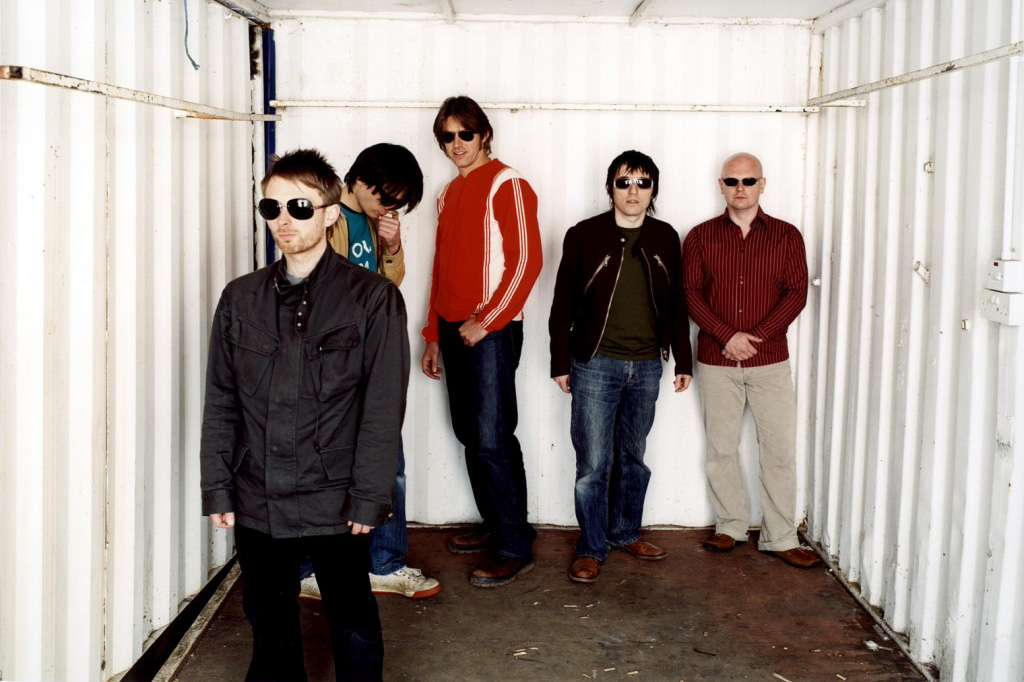We reach the next millennium with my picks from 1998 to 2002.
(Don’t forget to check out PART ONE and PART TWO)
1998: Garbage – Version 2.0
Version 2.0 is an apt title for Garbage’s sophomore release. The album feels like a soft reboot. It found the band incorporating more electronic elements into their rock sound, which pushed them further into their own unique vibe. The songwriting is classic, with excellent singles like “I Think I’m Paranoid,” “When I Grow Up” and “Special.” Duke Erikson takes his guitar tone to new heights on this record, adding in a cool wah effect that gives the tracks a cool, unkempt sensation. Shirley Manson’s vocals were also at their peak, whether screaming at the top of her lungs or sinking to an irresistible croon. All these elements come together perfectly on “Push It,” the band’s best song. It’s part-grunge, part Bond anthem, part trip-hop, all brilliant. Beyond the singles though, this album is worth a deep dive and revisit.
1999: Porcupine Tree – Stupid Dream
Within Porcupine Tree’s catalog, Stupid Dream stands out as a clean break with their previous four albums. Those earlier records from the band leaned into Pink Floyd types of spacey psychedelica. This record though? It’s as close to pop rock as founder and principal songwriter Steven Wilson would ever get. Given the dead zone of rock music at the end of the 90s, it’s a shock that guitar-based songs like “Pure Narcotic” or “Stranger by the Minute” weren’t immense hits. Besides those mainstream attempts though, the band were still pushing their progressive credentials. “Slave Called Shiver” slides by on a great bass line. “Piano Lessons” opens with the catchiest off-beat keyboard melody you’ll ever hear. “Don’t Hate Me” throws a sax solo in the middle of its groove. In an alternate reality, the future of rock music would have started right here.
2000: Radiohead – Kid A
There’s no reason why Kid A should have worked. And that’s exactly why it does. It’s cold and alien, full of clinical electronic buzzes, but also warm and emotional at points. Thom Yorke’s vocals are often chopped up and distorted. Johnny Greenwood’s guitar is virtually absent. “Everything In Its Right Place,” with its fuzzy computer keys, is somehow one of the band’s greatest songs. The same is true of the IDM beats and harsh, sampled melody of “Idioteque.” Or the bass line and free jazz chaos of “The National Anthem.” But “How To Disappear Completely” pulls you back with its pure, panicked beauty, led by the melding of Yorke’s voice and Greenwood’s string arrangement. It’s the mixture of turmoil, stress, numbness and cathartic release found in this weird, electronic landscape that makes Kid A work so well. I can’t think of a better way to summarize the 21st century thus far.
https://www.youtube.com/watch?v=rMHtV1M6zM8
2001: Radiohead – Amnesiac
Yes, we’ve got two Radiohead albums in a row! Amnesiac is often viewed as the little brother to Kid A, even though the songs were written at the same time. While the earlier record had the bigger impact, this one is equally worthy of a deep dive. An even more challenging album, it mixes its electronica with influences from krautrock, classical music and jazz. “Pyramid Song” is gorgeous in its peaceful melancholy. “I Might Be Wrong” is built around a trance blues riff pushed up against Thom Yorke’s faded vocals. “Dollars & Cents” is a jazzy, orchestral jam that goes from laid-back to tense in an instant, with a furious salvo against late-stage capitalism. Then you have “Life In a Glasshouse,” which is basically a big band track. Dense, absurd and inventive, Amnesiac is a diamond in the rough.
2002: Queens of the Stone Age – Songs For The Deaf
Why Songs for the Deaf? Cause it’s just a damn fun time! Not every record needs to be weighed down with meaning or emotion. Sometimes, you just want to rock out to some kickass songs. That’s the Queens of the Stone Age’s MO. On tunes like “You Think I Ain’t Worth A Dollar, But I Feel Like A Millionaire” or “Go With The Flow,” you’ll want to get in a car and speed down a desert highway. It’s equally impossible to sit still during “No One Knows” or “First It Giveth.” These songs hit hard, mainly due to Josh Homme’s incredible versatile guitar playing (like on “Song For the Dead”) and the guest appearance of Dave Grohl on the drums. Even slower tracks like “God Is In The Radio” or “Mosquito Song” give you an enjoyable chance to catch your breath before you enter the maelstrom again.
